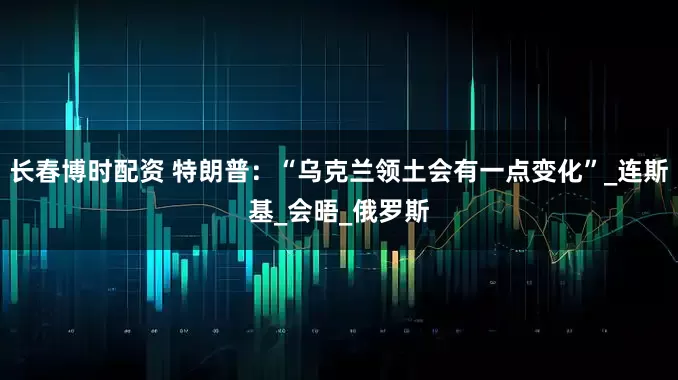
编者按:在全球化浪潮的推动下,移民和跨国婚姻日益普遍,由此诞生的“第三文化孩子”(Third Culture Kids,TCKs)群体也逐渐壮大。在多种文化交织的环境中,他们的成长经历往往伴随着身份认同的困惑。然而通过亲身体验,他们逐渐意识到:身份认同不是非此即彼的选择,而是一个持续演变的自我发现过程。这种与生俱来的跨文化身份大牛网,赋予他们在不同文化间“通行(passing)”的优势。
在由中国宋庆龄基金会主办的“文化小大使”国际交流活动中,我们认识了中西混血男孩林米阳(Lin Sanchez Barba Millan)。他今年14岁,来自西班牙马德里。

图为林米阳接受采访现场
“我之前跟妈妈来过很多次中国,但这是我第一次到北京。”采访前,林米阳刚结束了故宫的游览。他认真地分享道:“参观故宫真的是一次很酷的经历!在西班牙没有这样的建筑,我喜欢听导游讲解那些建筑的历史和独特的建造方式。”
采访中,林米阳始终用流利而自然的中文对答。对此,他解释说:“我从小就开始学习中文,因为我的妈妈是中国人。”谈话间,他的妈妈始终静静地守在镜头旁,偶尔会提醒孩子挺直腰背。这一简单的动作,是中国妈妈们心照不宣的默契。

图为林米阳与妈妈的合照
“我练过中国功夫,回到西班牙我会继续学习。”他顿了顿,又补充道:“中国美食也很棒,可惜在西班牙吃不到正宗的中国菜。”虽然从小在异国长大,但在母亲日复一日的言传身教中,中华文化的种子早已在这个少年心中生根发芽。他对中华上下五千年历史尤为着迷。“中国有着悠久的历史,这在其他国家很少见。”林米阳为这份悠久而辉煌的文明感到骄傲。这份骄傲,不仅仅是对“妈妈的祖国”的认同,也让他对“我是谁”有了更清晰的答案。

图为林米阳在对外经贸大学参观大牛网
“作为混血儿,我常常被问到是西班牙人还是中国人。这个问题曾经让我感到困扰。”林米阳说。尽管他的中文表达已经十分流利,但语言终究不能消除所有的文化隔阂。但现在,随着与中国互动的逐渐增多,林米阳越来越深刻地认识到,自己并不需要在两种文化间做出取舍。他的存在本身,就是对文化交融最生动的诠释。

图为林米阳在中国印象·沙龙活动现场
林米阳的故事并非个例。在世界各地,千千万万海外华人及其后代正以自己的方式,完成他们的文化身份叙事。美籍华人James Hsu在英语访谈节目《The Honest Drink》中作为嘉宾也曾谈到这一话题。尽管在四十岁之前,他想坚持自己的西方身份以获得稳定感。但在来到中国后,他倾向于成为一个“真正的中国人”。James说:“有原因让我们成为现在的样子,不要去抗拒它。”我们无法要求生活在国外的华人或混血群体天然地存在对中华文化的认可与共鸣,但当他们置身其中,不再刻意地寻找周围的亚裔面孔时,或许能够获得前所未有的舒适感和归属感。

图为James Hsu在访谈节目《The Honest Drink》
当“第三文化孩子”逐渐摆脱非此即彼的认知焦虑时,他们开始发现跨文化身份的独特价值。游走于不同文化之间的特殊经历,使他们拥有了两套不同的思想体系和思维方式。同时,这种身份虽然限制了他们完全融入某一文化,却让他们获得了观察世界的双重视角——不是简单地比较现象差异,而是能够在更高维度上理解不同文明的内在逻辑。在世界各地联系日益紧密的当下,这种文化适应优势帮助他们在文明交汇处发现更多新的可能。

图为林米阳在中国印象·沙龙活动现场
当我们习惯性追问这些“第三文化孩子”到底是哪国人,期待他们对某一文化的绝对认同时,是否想过在这个文明交融的时代,人们的文化身份早已超越简单的地理归属,呈现出更加复杂的可能性。与其执着于为每个人贴上确定的文化标签,不如以更开放的心态理解这一现象,欣赏多元文化交融带来的无限生机与活力。
对海外华人及其后代来说,了解和学习中国文化,可以开启一段独特的自我发现之旅。无论是学习汉语,还是参与文化交流活动,那些看似平常的文化体验,都可能在某个瞬间唤醒血脉深处的记忆。我们期待海外华人加深对中华文化的理解,也希望他们以其独特的跨文化视角,促进不同文明间的平等对话与相互启迪。当多元文明能够和谐共生、彼此滋养时,人类才能共同书写更加美好的未来篇章。
责任编辑:何博媛
Flowing Belonging: Identity Recognition in the Era of Globalization
Editor's Note: Driven by the wave of globalization, migration and transnational marriages are increasingly common, leading to the gradual growth of the "Third Culture Kids" (TCKs) demographic. In environments where multiple cultures intertwine, their upbringing often comes with identity confusion. However, through personal experience, they gradually realize that identity is not an either/or choice, but a continuously evolving process of self-discovery. This innate cross-cultural identity gives them the advantage of "passing" between different cultures.
At the Junior Cultural Ambassadors international exchange event hosted by the China Soong Ching Ling Foundation, we met Lin Miyang, a Chinese-Spanish mixed-heritage boy. He is 14 years old and comes from Madrid, Spain.
"I had been to China many times with my mom before, but this is my first time in Beijing," Lin Miyang shared earnestly before the interview, having just finished his visit to the Forbidden City. "Visiting the Forbidden City was a really cool experience! There are no buildings like that in Spain. I love listening to the guide explain the history and unique construction methods of those buildings."
During the interview, Lin Miyang answered consistently in fluent and natural Chinese. He explained, "I started learning Chinese when I was little because my mom is Chinese." Throughout the conversation, his mother quietly stayed by the camera, occasionally reminding her son to sit up straight. This simple gesture reflects the unspoken understanding among Chinese mothers.
"I've practiced Chinese Kung Fu, and I'll continue learning it when I go back to Spain." He paused, then added, "Chinese food is great too, but it's a pity I can't find authentic Chinese dishes in Spain." Although he grew up in a foreign country, through his mother's daily words and actions, the seeds of Chinese culture had already taken root in this young boy's heart. He is particularly fascinated by China's five-thousand-year history. "China has such a long history, which is rare in other countries." Lin Miyang takes pride in this long and glorious civilization. This pride is not only a recognition of "Mom's homeland" but also provides him with a clearer answer to "who I am."
"As a mixed-heritage person, I am often asked if I am Spanish or Chinese. This question used to bother me," Lin Miyang said. Although his Chinese is very fluent, language ultimately cannot eliminate all cultural barriers. But now, as his interactions with China gradually increase, Lin Miyang is realizing more profoundly that he doesn't need to choose between the two cultures. His very existence is the most vivid interpretation of cultural integration.
Lin Miyang's story is not an isolated case. Around the world, millions of overseas Chinese and their descendants are completing their cultural identity narratives in their own ways. James Hsu, a Chinese American, also spoke about this topic as a guest on the English interview program "The Honest Drink." Although he tried to maintain his Western identity for a sense of stability before the age of forty, after coming to China, he found himself leaning towards becoming a "true Chinese." James said, "There's a reason we are who we are; don't fight it." We cannot demand that overseas Chinese or mixed-heritage individuals naturally possess a recognition and resonance with Chinese culture, but when they are truly immersed in it and no longer deliberately search for Asian faces around them, they may gain an unprecedented sense of comfort and belonging.
As "Third Culture Kids" gradually overcome the anxiety of either/or cognition, they begin to discover the unique value of their cross-cultural identity. The special experience of moving between different cultures gives them two distinct thought systems and ways of thinking. At the same time, while this identity might limit their complete integration into one culture, it grants them a dual perspective for observing the world – not merely comparing phenomenal differences, but being able to understand the intrinsic logic of different civilizations at a higher dimension. In today's increasingly interconnected world, this cultural adaptability helps them discover more new possibilities at the crossroads of civilizations.
When we habitually press these "Third Culture Kids" about "which country they belong to," expecting their absolute identification with a single culture, have we considered that in this era of cultural convergence, people's cultural identities have long surpassed simple geographical belonging, presenting more complex possibilities? Rather than stubbornly trying to label everyone with a fixed cultural tag, it is better to approach this phenomenon with a more open mind and appreciate the infinite vitality and dynamism brought about by multicultural integration.
For overseas Chinese and their descendants, understanding and learning about Chinese culture can initiate a unique journey of self-discovery. Whether through learning Chinese or participating in cultural exchange activities大牛网, those seemingly ordinary cultural experiences may, at a certain moment, awaken memories deep within their heritage. We anticipate that overseas Chinese will deepen their understanding of Chinese culture, and we also hope that they will use their unique cross-cultural perspectives to promote equal dialogue and mutual enlightenment among different civilizations. Only when diverse civilizations can coexist harmoniously and nourish each other can humanity collectively write a more beautiful chapter for the future.
天盛优配提示:文章来自网络,不代表本站观点。







